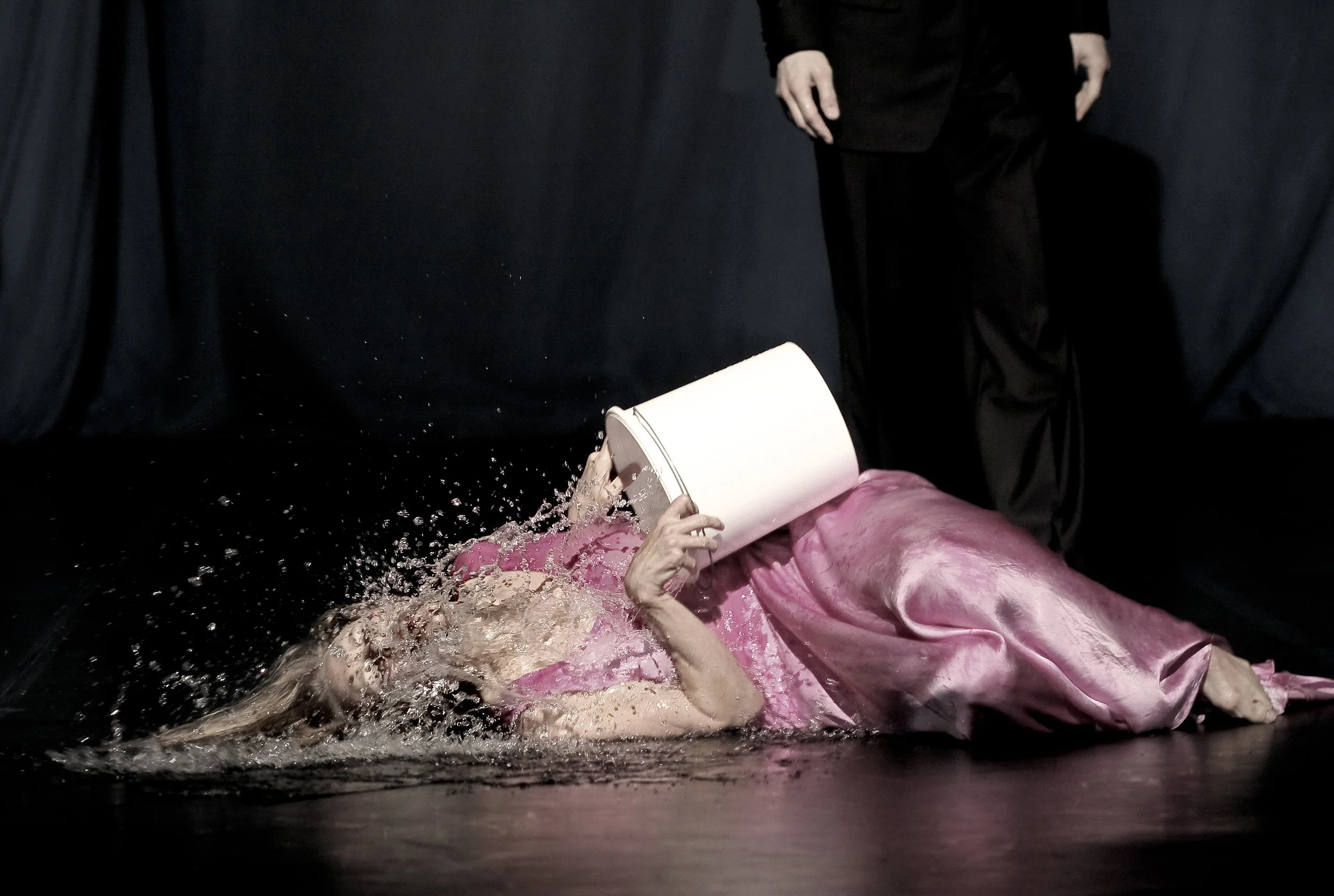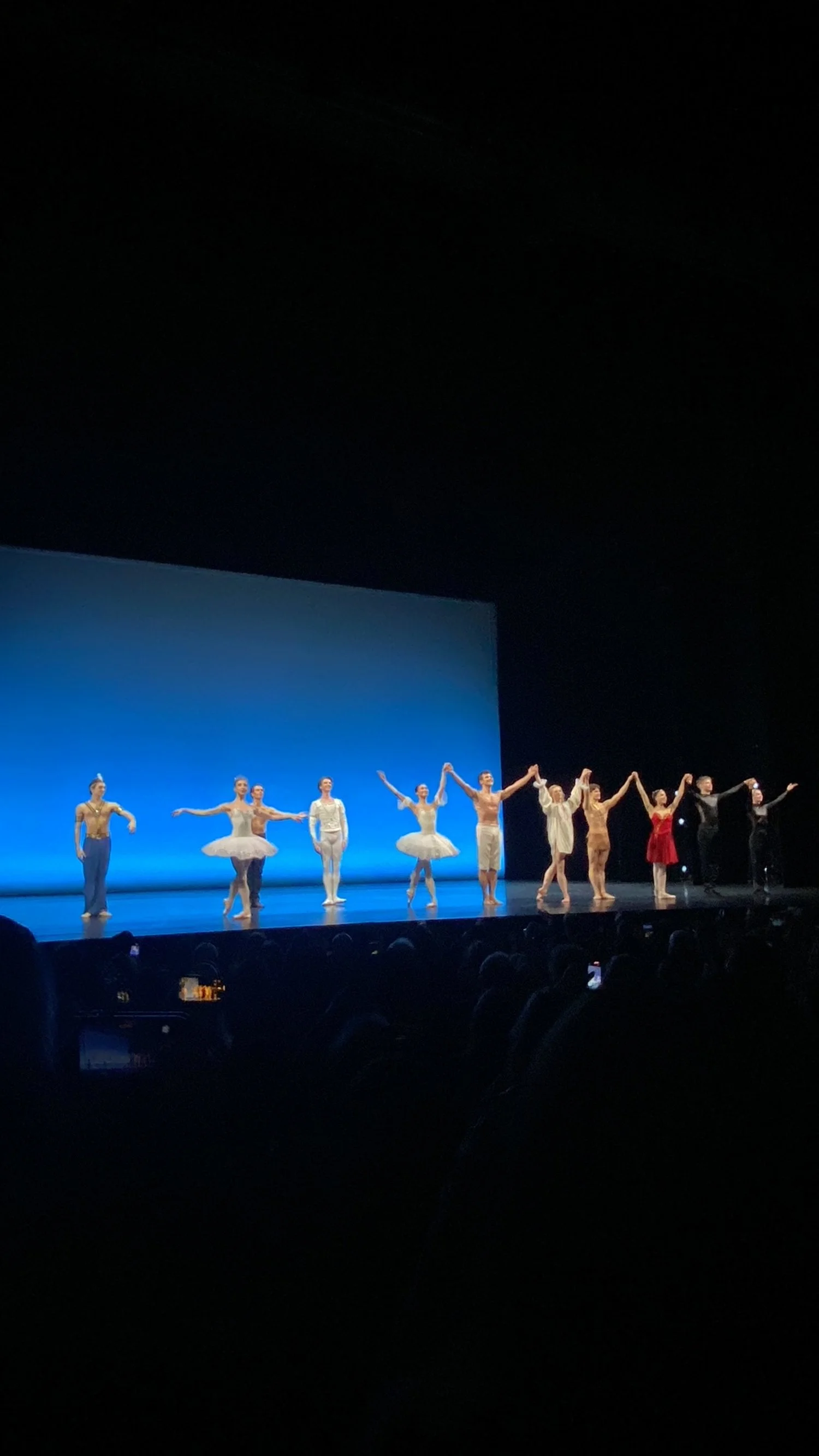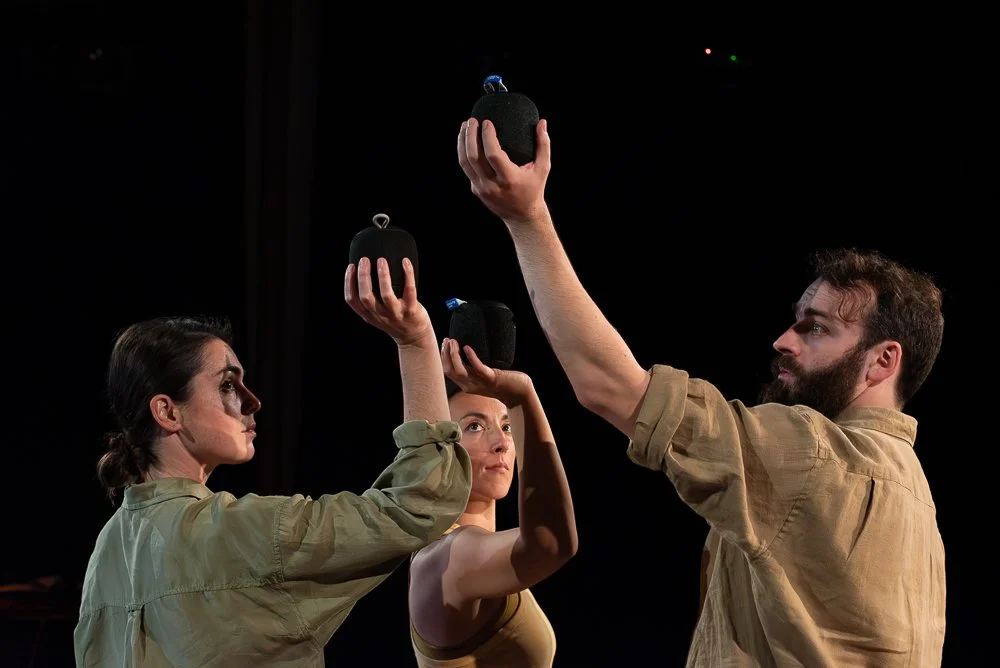Cunningham Forever, Lyon Opera Ballet
Ballet Opera Lyon, BeachBirds © Agathe Poupeney
Watching Cunningham Forever by Lyon Opera Ballet was a dance show and museum exhibition in one. You left having experienced a fabulous night out, but also with a deep understanding of the impact the choreographer has had on dance.
Merce Cunningham (1919-2009) was an American choreographer who worked for 70 years to push the boundaries of dance. He argued that dance and music need not be intertwined, and used chance (such as rolling a dice) to determine things like timing and how he used space.
Ballet Opera Lyon, BeachBirds © Agathe Poupeney
In the first work of the night, Beach Birds (prem. 1991), you could feel this randomness at play. Set against a soundscape made of piano notes and a rain machine, dancers in black and white unitards moved from one position to another. You could sense Cunningham pulling dance away from its balletic routes, yet still grounding it in the classical style: arabesques (leg lifts) were flat and straight, limbs long and angular. The work was more placed than ballet, the emphasis being on the importance of shape more than feeling. It was so peaceful and calm, and yet every so often there would be bursts of energy - a darting soloist, a vibrating leg. The work kept you on your toes. Cunningham said that even if he disagreed with the role of the dice, he would stick with what it told him, not wanting his own personal curatorial instinct to impact the imaginative potential of the work. And maybe we should all take a leaf out of his book. For what was most impressive was the work’s structure. Dancers constantly joined and departed the stage, often in a series of lunges, but it was so seamless as to be nearly unnoticeable.
Ballet Opera Lyon, BIPED © Agathe Poupeney
Cunningham was also a technological innovator, and one of the first to choreograph using a computer. In BIPED (prem. 1999), he projected stick dancers and objects on top of the screen to add dimension to a work that had more energy from the first, helped by an electronic, although still mellow, score. The animation felt superfluous and crude to the modern eye but you can imagine how fresh and exciting it would have been at its premiere nearly 30 years ago. It was like stepping back in time - an experience you don’t get in plays or opera as the works are often re-set and redesigned. For me, however, this was the weaker of the works. The novelty of Merce’s style had worn off a little and the choreography felt less varied, an issue Beach Birds rarely had, constantly evolving and finding new shapes.
You could see how a modern choreographer like Wayne McGregor has developed from this style: both use dancers for their form over their feeling and have an interest in technology. Without saying a word, and without a programme biography, this double-bill had successfully demonstrated Cunningham’s lasting impact on dance. My regards to the curator.
★★★★
Beach Birds and BIPED by Merce Cunningham
Performed by Lyon Opera Ballet at Sadler’s Wells, London / 19 March 2025
Press ticket
Part of Dance Reflections by Van Cleef & Arpels Festival
Find your next dance show
All dance shows happening across the UK, all in one place. Only on Like Nobody’s Watching.
Check out these related reviews
🪩 Brought to you by Like Nobody’s Watching. Read about our mission →






